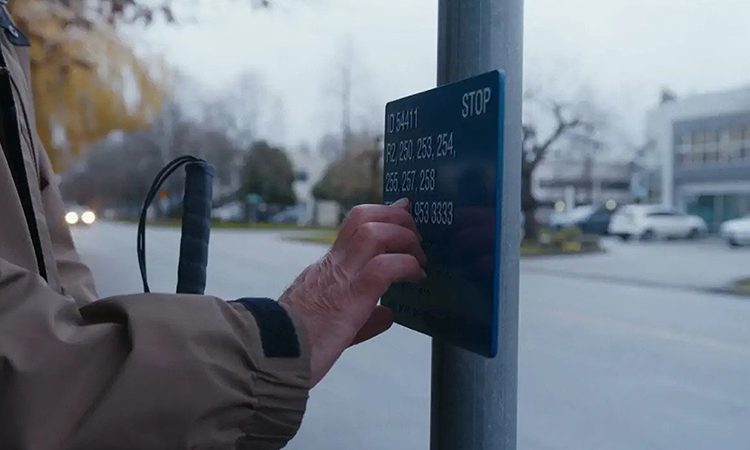TransLink becomes first Canadian transit system with braille signage at every bus stop
- Like
- Digg
- Del
- Tumblr
- VKontakte
- Buffer
- Love This
- Odnoklassniki
- Meneame
- Blogger
- Amazon
- Yahoo Mail
- Gmail
- AOL
- Newsvine
- HackerNews
- Evernote
- MySpace
- Mail.ru
- Viadeo
- Line
- Comments
- Yummly
- SMS
- Viber
- Telegram
- Subscribe
- Skype
- Facebook Messenger
- Kakao
- LiveJournal
- Yammer
- Edgar
- Fintel
- Mix
- Instapaper
- Copy Link
Posted: 4 December 2023 | Intelligent Transport | No comments yet
TransLink achieves a historic milestone by becoming the first Canadian transit system to introduce braille signage at every bus stop, enhancing accessibility for individuals with visual impairments.


Credit: TransLink
TransLink, Metro Vancouver’s transit authority, has announced that it has become the first in Canada to install braille signage at all 8,400 bus stops throughout the region. This initiative aims to improve accessibility for customers who are blind or partially sighted, offering crucial transit information through Unified English Braille and raised tactile letters.
TransLink’s CEO, Kevin Quinn, said: “A great transit system is one that’s accessible for everyone. We’re proud to have worked with our partners to be the first to deliver braille signage and tactile walking surface indicators to help all our customers get to their destination.”
The braille and tactile bus stop signs provide comprehensive information, including bus stop ID numbers, bus routes serving that stop, bay or bus stop indicators, as well as a customer information phone number. This comprehensive approach ensures that individuals with visual impairments can confidently navigate public transportation, knowing their current location and the buses servicing their stop.
In addition to the braille and tactile signage, TransLink has also implemented tactile walking surface indicators at every bus stop located on their property. These ground-mounted indicators assist customers who are blind or partially sighted by signalling their proximity to a bus stop and guiding them toward the bus’s front door.
UK government unveils £5.3 million funding to enhance rail accessibility
These improvements are the result of extensive collaboration with various stakeholders, including Access Transit’s Users’ Advisory Committee, the Canadian National Institute for the Blind (CNIB) and other regional partners.
Shoko Kitano, Executive Director of CNIB for British Columbia and Yukon, highlighted the importance of braille for people with visual impairments, saying, “Our goal is to ensure people get to where they need to go, when they need to go – and braille is essential for many people who are blind or have low vision.”
TransLink’s commitment to accessibility extends beyond physical signage. Since 2020, the transit authority has been expanding real-time text-to-audio next bus technology at bus stops. This includes installations at every RapidBus stop throughout the region and at every stop at UBC Exchange.
As TransLink continues its efforts to make public transportation more inclusive, the implementation of braille signage stands as a significant milestone in providing equal access to transit information for all passengers.
Related topics
Passenger Accessibility, Passenger Experience, Public Transport
Related modes
Bus & Coach
Related cities
Vancouver
Related countries
Canada
Related people
Kevin Quinn, Shoko Kitano







